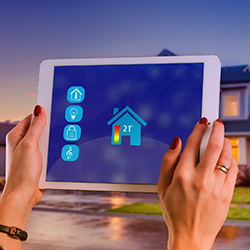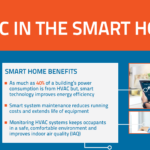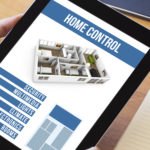 The coronavirus pandemic had some unexpected consequences for the HVAC industry. While warmer temperatures typically yield lower bills, monthly bills increased by over 10% this summer.
The coronavirus pandemic had some unexpected consequences for the HVAC industry. While warmer temperatures typically yield lower bills, monthly bills increased by over 10% this summer.
This increase was due to homeowners staying put due to fear of the virus. More people are working from home and attending school remotely than ever before.
With increased demand on your HVAC unit, it is time to outfit it with the most modern technology. Read on to learn about smart technology in the HVAC industry. You can save money and increase monthly performance by upgrading your unit.
Smart Sensors
The latest advancements in HVAC technology use smart sensors to monitor activity and recommend action. In some cases, this action is automated based on the sensor’s readings.
Movement detectors are just one example of a smart sensor. They can be easily affixed to an intake or wall vent.
The HVAC unit operates based on movements within the home. It will remain off if the sensor does not pick up any human presence in the home.
Pressure sensors are also becoming more common. They detect pressure drops in rooms or filters.
These drops indicate that the HVAC system may need maintenance. There are also sensors for air quality and smoke detection in the ductwork.
Other smart sensors inform homeowners of upcoming preventative maintenance. They provide alerts to homeowners that filters need changing or a service checkup is overdue.
The key here is addressing issues with your HVAC system before they arise. With smart sensor notifications, you can prevent costly failures and extend the service life of your HVAC unit.
Smart Thermostat
The next thing you need to modernize your HVAC unit is a smart thermostat. They are increasingly common and products like the Google Nest are widely available.
The most effective feature is the ability to control your thermostat with your smartphone. It allows you to increase or decrease the temperature while you are away. The end result is lower monthly bills and longer service life as the HVAC unit is used less.
However, the thermostat is just breaking the surface of smart technology. Temperature control is a relatively small facet of a complicated network of components.
Future of HVAC
While sensors and smart thermostats are already on the market, there are many exciting new developments on the way. Green energy companies are engineering HVAC units that use significantly less electricity.
One product freezes water in a tank and uses it for cooling the next day. Another HVAC design uses solar energy to reduce monthly utility costs. It supplements the absorbed solar power with natural gas.
A Recap of Smart Technology in the HVAC Industry
Smart tech is finding its way into every industry and HVACs are no different. You can now control your home’s temperature with your smartphone. There are also smart sensors to detect potential issues and remind you to change air filters.



